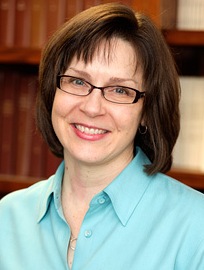Award helps professor zero in on what's important
June 3, 2013
Share
 Marcia Finlayson won the Muriel Driver Memorial Lectureship Award, the highest honour for a Canadian occupational therapist.
Marcia Finlayson won the Muriel Driver Memorial Lectureship Award, the highest honour for a Canadian occupational therapist. Marcia Finlayson is conscious of the huge opportunity she’s been given, as recipient of the highest honour a Canadian occupational therapist (OT) can receive – the Muriel Driver Memorial Lectureship Award – and she plans to use it to shake things up.
“It’s a real honour because it is recognition from your peers. The award gives you the ability to go and focus on something you think is really important. ,” says Dr. Finlayson, Vice Dean (Health Sciences) and Director of Queen’s School of Rehabilitation Therapy.
Dr. Finlayson’s lecture, which she delivered May 31 at the Canadian Association of Occupational Therapists (CAOT) Conference in Victoria, focused on being a change agent, which is one of the seven roles outlined for the profession by the CAOT. The core role of an occupational therapist is to be an expert enabling occupation; the change agent role is one of several supporting roles. Dr. Finlayson examined what being a change agent means for the field.
“I am challenging the profession to take a more holistic and nuanced view of what that role should look like and what we need to do in our education and research programs to be effective change agents,” she says. “Currently, the role of change agent focuses on advocacy, communicating the benefits of occupational therapy and advocating for occupational engagement. I don’t think that it is enough – we have to do more.”
A holistic perspective, Dr. Finlayson says, would include articulating problems, initiating change with the right people, managing a change process over time, and effectively galvanizing people and taking on leadership roles.
Dr. Finlayson uses the example of working with multiple sclerosis patients – her area of expertise. Reducing mobility issues may include more than prescribing a walker or wheelchair, and training a person to use it. It could mean addressing larger issues, such as accessibility problems on city transit and in taxicabs. That could mean working with city staff and planners, or working to implement training programs to educate taxi drivers about how to disassemble and safely lift a wheelchair into a trunk. These types of strategies offer the possibility of making system-wide changes that influence more than an individual client.
The award, administered by the CAOT, is also significant for its connection to Queen’s. Its namesake, Muriel Driver, was instrumental in starting the occupational therapy program and School of Rehabilitation at Queen’s in 1967. She served first as a senior lecturer and then as an assistant professor until her death in 1972. Three other Queen’s professors have won the Muriel Driver award over the years.
Dr. Finlayson will repeat her Muriel Driver Memorial Lecture on Queen's campus on June 11, noon, at the Medical Building, 15 Arch St., Rm.132.
More details on the award and Dr. Finlayson’s background.